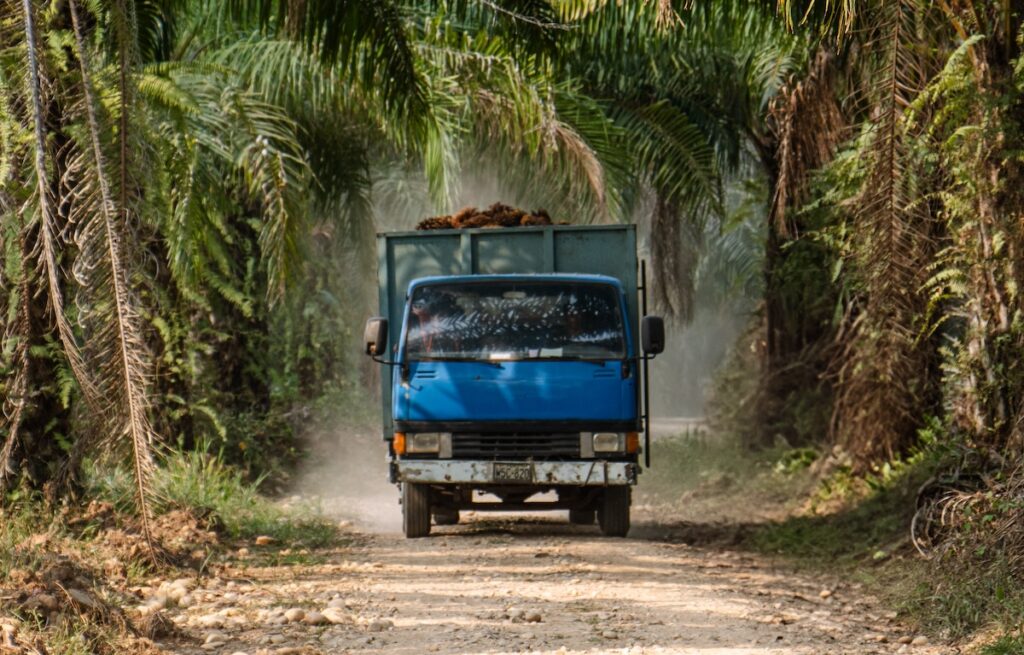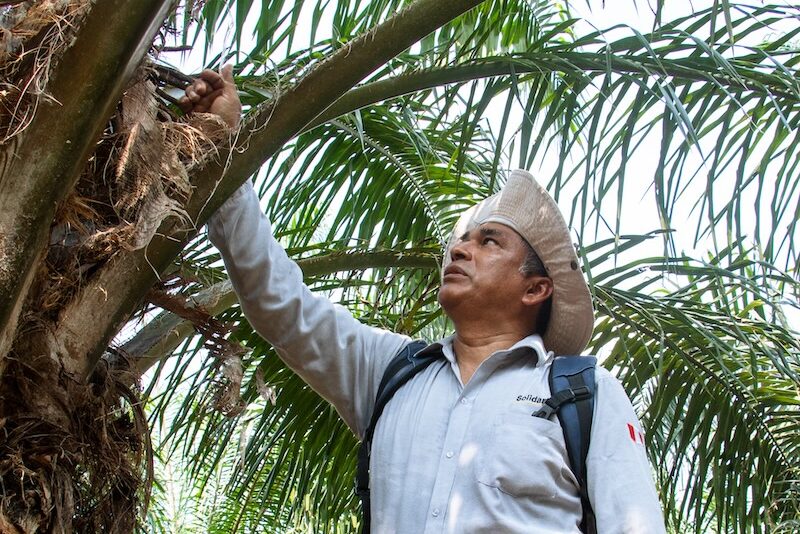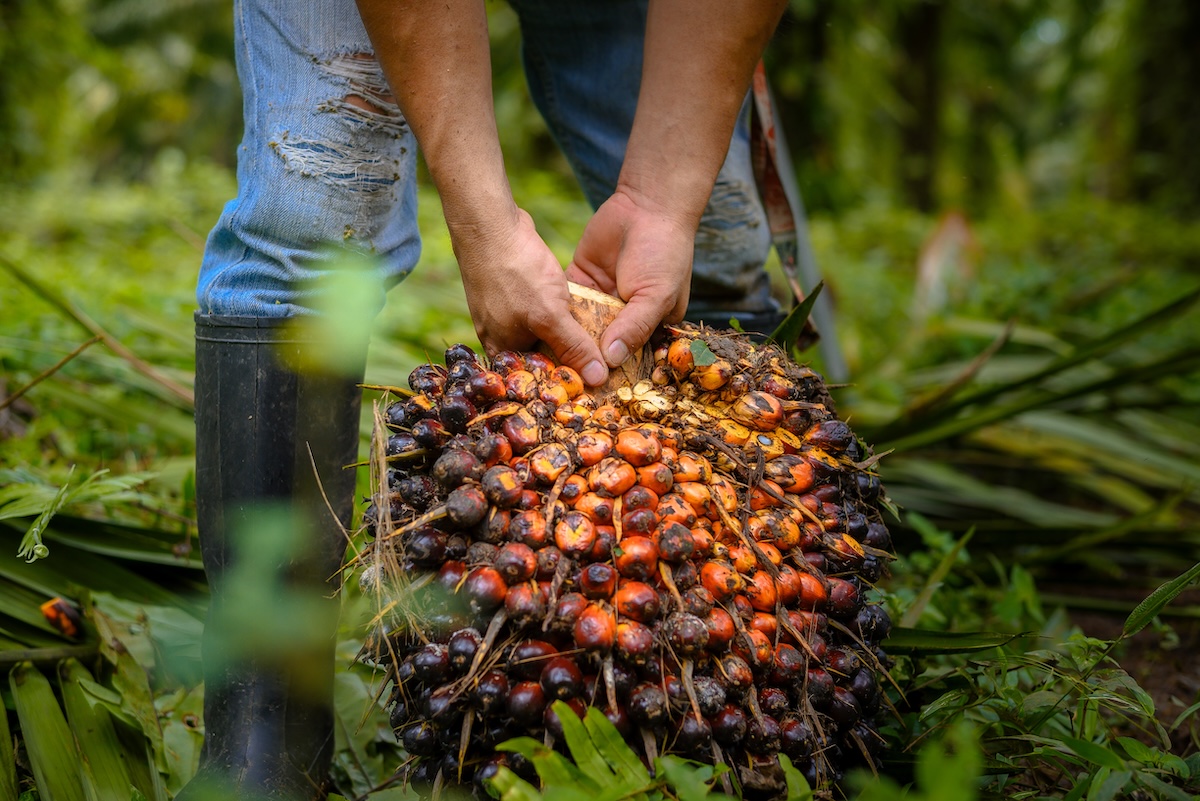As the world seeks sustainable solutions for adapting to a changing climate, palm oil has become pivotal. What makes this gathering at RT2024 a turning point for the future of the industry and the planet?
Palm Oil’s Global Impact: Beyond the Crop
Palm oil is more than an agricultural crop; it’s a global commodity. Found in nearly 50 percent of packaged consumer goods – from food products to personal care items – its presence in our everyday lives is undeniable. Over the past decade, palm oil consumption has skyrocketed primarily due to its low cost, versatility, and the rise of global trade.
Palm is highly productive with a smaller footprint than other sources of edible oil, yielding 4-10 times more per hectare than other crops. As of 2023, palm oil accounts for approximately 35% of global edible oil production, making it the leading vegetable oil in the world.
Most of the palm oil consumed worldwide is cultivated on oil palm farms and plantations in Southeast Asia, particularly in Indonesia and Malaysia, which together account for around 85% of global production. While some is consumed locally, the bulk of palm oil is exported for use in food, cosmetics, biodiesel, and other industries, underscoring its vital role in global supply chains.
However, the rise in palm oil production has not been without controversy. Concerns about deforestation, labor rights, and environmental impact have fueled a shift towards sustainable certification, where organizations like the Roundtable on Sustainable Palm Oil (RSPO) play a key role in ensuring that palm oil can be produced in compliance with environmental and social standards.

Independent smallholders in Latin America: An Emerging Force in Sustainable Palm Oil
This year, Latin America showcased its growing influence in the sustainable palm oil sector. Three new independent smallholder groups – Aproman (Peru), Payway (Honduras), and Ancupa (Ecuador) – joined the ranks of RSPO-certified smallholder groups, and Entrepalmeros (Colombia) maintains its RSPO certification, adding momentum to the region’s efforts.
Compared to other regions, Latin American smallholder groups are distinguished by larger farm sizes and higher yields per hectare. In Honduras and Peru, smallholder farms average 10 hectares and yield an average of 15 metric tonnes of palm oil per hectare per year, significantly higher than typical yields of 3-5 tonnes among smallholders in Africa. This efficiency highlights the potential of Latin American farmers to be competitive and maintain sustainable practices.
The diversity of production models in Latin America also sets the region apart. From beekeeping projects in Peru and Colombia to eco-friendly practices in Honduras and Mexico, Latin American smallholder groups are adopting innovative strategies to improve farm resilience, increase biodiversity, and diversify income streams.
Learning, Collaborating & Growing: Bridging the Gap Between Regions
While producers in Asia are known for large-scale operations and long-established certification systems, the collaboration between Latin American and Asian smallholder groups at RT2024 was a clear indication of the power of cross-regional exchange. Interest in Africa is growing as well with smallholders from Sierra Leone, like Marvelous, expressing interest in learning about innovative approaches from their Latin American counterparts.
“We’re ready to show the world that Latin America can lead by example, combining sustainability with productivity.”
Milton Hernández, a smallholder farmer who supplies Payway in Honduras
International exchanges, like RT2024, provide a critical venue for smallholders to engage and learn from one another. Independent smallholders from Asia, Africa and Latin America explored best practices, shared challenges, and developed a deeper understanding of how regional contexts influence sustainable practices
A Path Toward 2025: Sustainability, Challenges, and Growth
The journey towards more sustainable palm oil production in Latin America is still unfolding. However, key insights emerged during RT2024 that will guide the path forward:
- Increasing certified volumes: There is a steady growth in the number of independent smallholder groups achieving RSPO certification in Latin America. At least six more groups are expected to be certified by the end of 2025.
- New Edition of Standards on the Horizon: Upcoming revisions to RSPO’s Independent Smallholder Standard will bring further opportunities for smallholders that balance the need for more flexible pathways for certification, support for diverse farming models, and rigorous standards.
- Reducing deforestation: Industry experts see independent smallholders groups as a key constituency for reducing deforestation. This will require supporting certified groups and strengthening governance and leadership to support a robust and sustainable scaling up strategy.

Why RT2024 Matters: The Future of Palm Oil
RT2024 was more than a conference; it was a milestone for the palm oil industry. It was a moment for the global community to recognize the important contributions of Latin American smallholder groups and celebrate their growing role in sustainable palm oil production.
By connecting smallholders from Southeast Asia, Africa, and Latin America, the event reinforced the idea that sustainability in palm oil production is a global effort. From LATAM to Asia, smallholders are rising to the challenge of transforming the industry while ensuring a future that is both prosperous and sustainable. As the sector moves towards 2025, there is a shared understanding: the palm oil of tomorrow will be defined by collaboration, innovation, and a deep commitment to environmental stewardship.
“It’s not just about the certification – it’s about the impact on families, communities, and ecosystems. Sustainability can bring about real transformation”
Pedro Seijas Cardenas, TechnIcal Lead at Aproman, a smallholder oil palm organization in Peru
The RT2024 event demonstrated that sustainability is a journey worth taking. From the forests of Amazonia to the farmlands of Thailand, every step taken by smallholders is a step toward a better future – for them, for their communities, and for the planet.
So, why should we care? Because these farmers are not just growing crops; they are growing hope, collaboration, and a vision of a world where palm oil can be a force for good. And that is a story worth telling.

